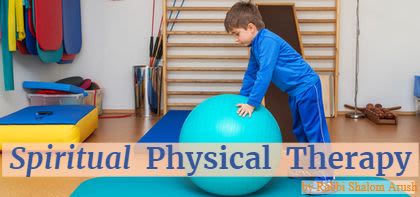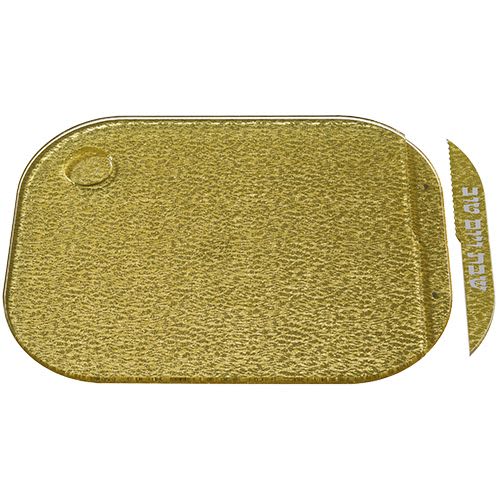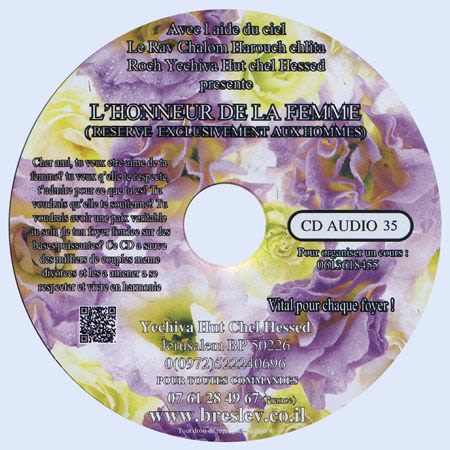
Spiritual Physical Therapy
Even seemingly small things in childhood and babyhood have a huge influence on the rest of the child’s life. This is true of physicality and even truer of spirituality.

The Center for Child Development
When Moshe started first grade, everyone was excited. He was smart and had lots of friends – the dream of every teacher. Everyone was surprised when the teacher came to Moshe’s parents and said that he had a major writing problem. His parents him to a special physical therapist who specializes in writing problems.
The Specialist told Moshe’s parents that because they were so afraid of SIDS, he was not given tummy time as a small baby. Thus, the development of his arms, hands, and shoulders had been severely compromised. Even though the problem only occurred during the first few months of his life, they influence the entire development of the child. Moshe would now need months of serious and intensive therapy to make up for what he didn’t have in the first few months of his life. Nor could the specialist promise Moshe’s parents that it would ever be the same – he only could hope that over time, Moshe’s situation would significantly improve.
This is a true story; one of many. We see from the story that even “small things” in childhood, and even babyhood, have a huge influence on the rest of the child’s life. If this is true of physicality, then it is even more true of spirituality.
A child who drinks emuna through his mother’s milk starts life with a deep foundation of emuna which will carry him his entire life. But a child who is not raised on the knees of emuna, will have to work and struggle intensively in order to come to even the most basic level of emuna that is required of a Jew.
Moreover, the message is doubled: Parents need to know how to give their child the “spiritual treatment” their child needs at the right time, and they also must work on their own emuna, since most adults in this generation were not raised with emuna, either.
A Yiddishe Mama
This concept also answers a question that many people ask me: Why do I speak so much about emuna? Emuna wasn’t spoken about so much in previous generations…
The answer is simple: In previous generations, a baby was constantly at his mother’s side for at least the first two years of his life. Even more importantly, the classical image of the Jewish mother for generations is a woman of emuna! She prayed and spoke to Hashem constantly, and her book of Psalms was worn and filled with tears. She believed in the tzaddikim with simple and perfect faith, and overflowed with love of the Torah. She loved, and encouraged, and blessed, and strengthened everyone around her. She literally nursed emuna, love, warmth and emotional strength into the body and soul of her children.
However, in our generation, mothers often need to work, or they are on the telephone, or dealing with managing the house. Moreover, even in Dati and Chareidi (religious and ultra-Orthodox) families, the mother is not necessarily the image of perfect emuna. That is assuming that the children are even with their mothers, as opposed to babysitters or teachers. The relationship of a child and a real mother simply cannot be compared to that of a nanny who is ultimately only doing her work.
Hence, the deep foundation of emuna and self-esteem that once was, is greatly lacking in our generation. Furthermore, remember that Rebbe Nachman teaches that emuna and the nefesh (lowest level of the soul corresponding to the emotions) are the same aspect – which means that every weakness in emuna creates a corresponding weakness in the emotional stability and health of a person. Now, let’s build onto this what we just learned – that a weakness in the early stages of life becomes magnified as the child grows, and repairing it at a later stage requires intensive work. It is possible to say that we are a generation that is emuna-handicapped! And what we ourselves don’t have, we cannot pass onto our children…
Thus the need to work with special intensity and dedication on our emuna and belief in ourselves in a concerted effort to restore what we lacked in our formative years. There simply is no other option; it is impossible to restore a weak foundation without intensive effort of a much greater scale than would have originally been required. No different than someone who begins physical therapy after an operation, each and every one of us must invest in our emuna with daily spiritual exercises in order to return to a healthy emotional and spiritual life.
Restoring Emotional Health
The problem with almost everyone in our generation is that we do not believe in ourselves. We don’t believe that we are good, and that our deepest will is only to be good. We don’t believe that the bad that we see in ourselves is not our true self, but only a reflection of our Evil Inclination, and our handicap in emuna and therefore handicapped emotional stability. These emotional ills spoils the belief that Hashem loves us, that the world is fundamentally good, and that life is sweet. This creates a lack of self-esteem, which then creates an additional host of problems.
If we don’t believe in ourselves as good – how can we possibly believe that our children are fundamentally good, and that the bad in them isn’t their true selves? How can we build a healthy and strong marital relationship? And how can we truly come closer to Hashem?
Even more, someone who sees themselves as fundamentally bad suffers from all sorts of emotional ailments. Every little setback further destroys his brittle self-esteem. It’s no wonder that so many people don’t even feel the desire to live any more…
None of this makes us bad parents – it is simply the reality of our “advanced” generation that has destroyed the healthy foundations of the “old world” – foundations which are the basis of our personality and physical, emotional and spiritual health.
However, instead of complaining about the situation, we must take this also as being from Hashem, for our best. It is the special mission of our generation to reveal the emuna in ourselves and Hashem, and to work especially on them. And as I previously stated, the work is double: We must work on our own emuna and belief in ourselves through daily reminders, and we must work on strengthening our children, so that the next generation will grow up healthier, with emuna and self-esteem built into their earliest life.













Tell us what you think!
Thank you for your comment!
It will be published after approval by the Editor.